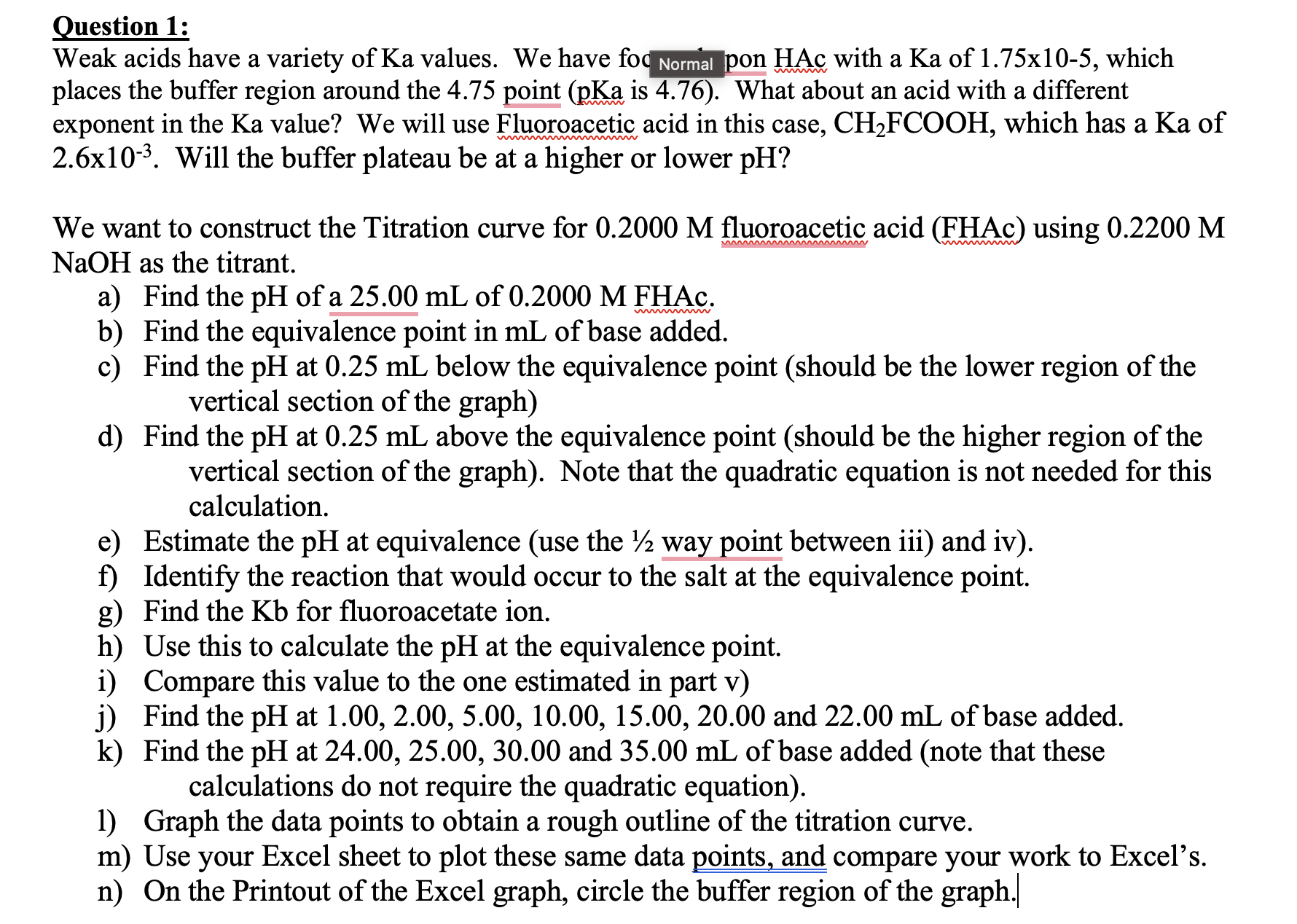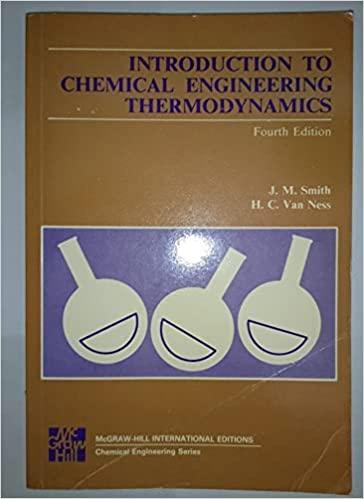Answered step by step
Verified Expert Solution
Question
1 Approved Answer
Please can you solve this by quadratic equation with ICE table Thank you Question 1: Weak acids have a variety of Ka values. We have

Please can you solve this by quadratic equation with ICE table Thank you
Question 1: Weak acids have a variety of Ka values. We have foc Normal pon HAc with a Ka of 1.75105, which places the buffer region around the 4.75 point ( pKa is 4.76). What about an acid with a different exponent in the Ka value? We will use Fluoroacetic acid in this case, CH2FCOOH, which has a Ka of 2.6103. Will the buffer plateau be at a higher or lower pH ? We want to construct the Titration curve for 0.2000M fluoroacetic acid (FHAc) using 0.2200M NaOH as the titrant. a) Find the pH of a 25.00mL of 0.2000MFHAc. b) Find the equivalence point in mL of base added. c) Find the pH at 0.25mL below the equivalence point (should be the lower region of the vertical section of the graph) d) Find the pH at 0.25mL above the equivalence point (should be the higher region of the vertical section of the graph). Note that the quadratic equation is not needed for this calculation. e) Estimate the pH at equivalence (use the 1/2 way point between iii) and iv). f) Identify the reaction that would occur to the salt at the equivalence point. g) Find the Kb for fluoroacetate ion. h) Use this to calculate the pH at the equivalence point. i) Compare this value to the one estimated in part v ) j) Find the pH at 1.00,2.00,5.00,10.00,15.00,20.00 and 22.00mL of base added. k ) Find the pH at 24.00,25.00,30.00 and 35.00mL of base added (note that these calculations do not require the quadratic equation). 1) Graph the data points to obtain a rough outline of the titration curve. m) Use your Excel sheet to plot these same data points, and compare your work to Excel's. n) On the Printout of the Excel graph, circle the buffer region of the graphStep by Step Solution
There are 3 Steps involved in it
Step: 1

Get Instant Access to Expert-Tailored Solutions
See step-by-step solutions with expert insights and AI powered tools for academic success
Step: 2

Step: 3

Ace Your Homework with AI
Get the answers you need in no time with our AI-driven, step-by-step assistance
Get Started


